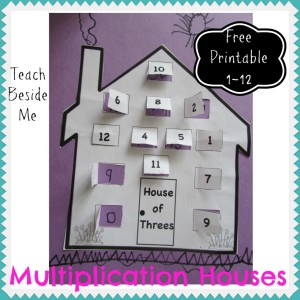10 Things Bilingual Children Do Really Well

Every child is good at something and as parents we love seeing our children do well. Bilingual children have an added advantage in different situations in their lives – and they often get really good, and – depending on their personality – sometimes cheeky with their language skills.
1. Correct their parents’ language
Children in multilingual families often grow up to become fluent, native-like speakers of the language of the community they live in – and do end up correcting their mums and dads! I have certainly been on the receiving end of this since we moved to England – and I am very thankful for it … really, honest!
2. Get better results at school
Bilingual children on average do better than their monolingual peers at school. Long gone is the myth that speaking more than one language will confuse a child and detract from learning other school subjects.
3. Don’t think being bilingual is anything special
Children growing up acquiring many languages don’t find it unusual or even that special to speak two, three, four or even more languages. It’s just part of their normal daily lives.
4. Amaze adults with their language skills
While they themselves don’t think that speaking many language is a great achievement, adults do find their skills amazing. Especially those who have tried to learn a new language themselves as adults find it difficult to get their head around a five-year-old confidently switching between three languages.
5. Enjoy it if their language is a school subject
Bilingual children get a “free ride” if one of their languages is a subject they have to study at school – you may think that your kid is using this time to learn something new, but actually, they are just enjoying a class where they can do well without much effort at all. I remember myself relaxing during the Finnish lessons at my Swedish-speaking school.
6. Giving cheeky incorrect translations
“How do you say it in your language?” – children can sometimes be really cheeky and give a translation which is not quite right. My Finnish-speaking aunt and her friends used to help a Swedish-speaking farmer when they were teenagers. The farmer thought that the girls could possibly work a bit harder and asked how to say that in Finnish. My aunt told him to say “Huilata! Huilata!” which actually means “Take a rest!”
7. Pretend not to know a language
Adults tend to forget that children can be bilingual, and children may well pretend not to know a language … and then secretly listen in on conversations. Remember this when you next time say something in your language when you are out and about.
8. Use a secret language
Bilingual siblings have the advantage of having a common secret language when they are among monolinguals. Not only does this help to convey “important” messages between them, but it also adds to their bond with each other and the language.
9. Make their parents proud
Language is an important part of every person’s identity and parents would normally want their children to learn the language they themselves have grown up with. Experiencing your child switching languages when speaking to different relatives in the extended family fills your heart with joy and pride.
10. Grow up with many additional benefits
Thanks to how bilinguals use their brain when speaking more than one language and switching between them they have found to be more creative, more open-minded, more flexible in their thinking and culturally more aware than monolinguals. Fantastic attributes to look forward to in the bilingual adults our children grow up to become!

 Previous Post
Previous Post Next Post
Next Post




